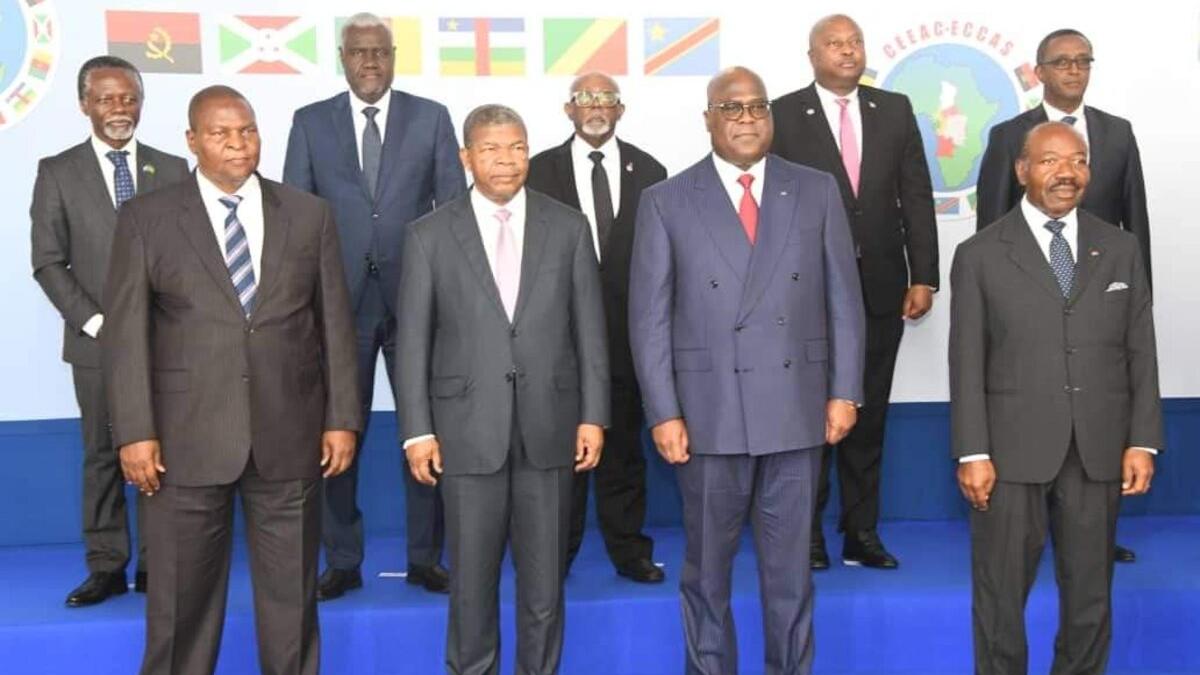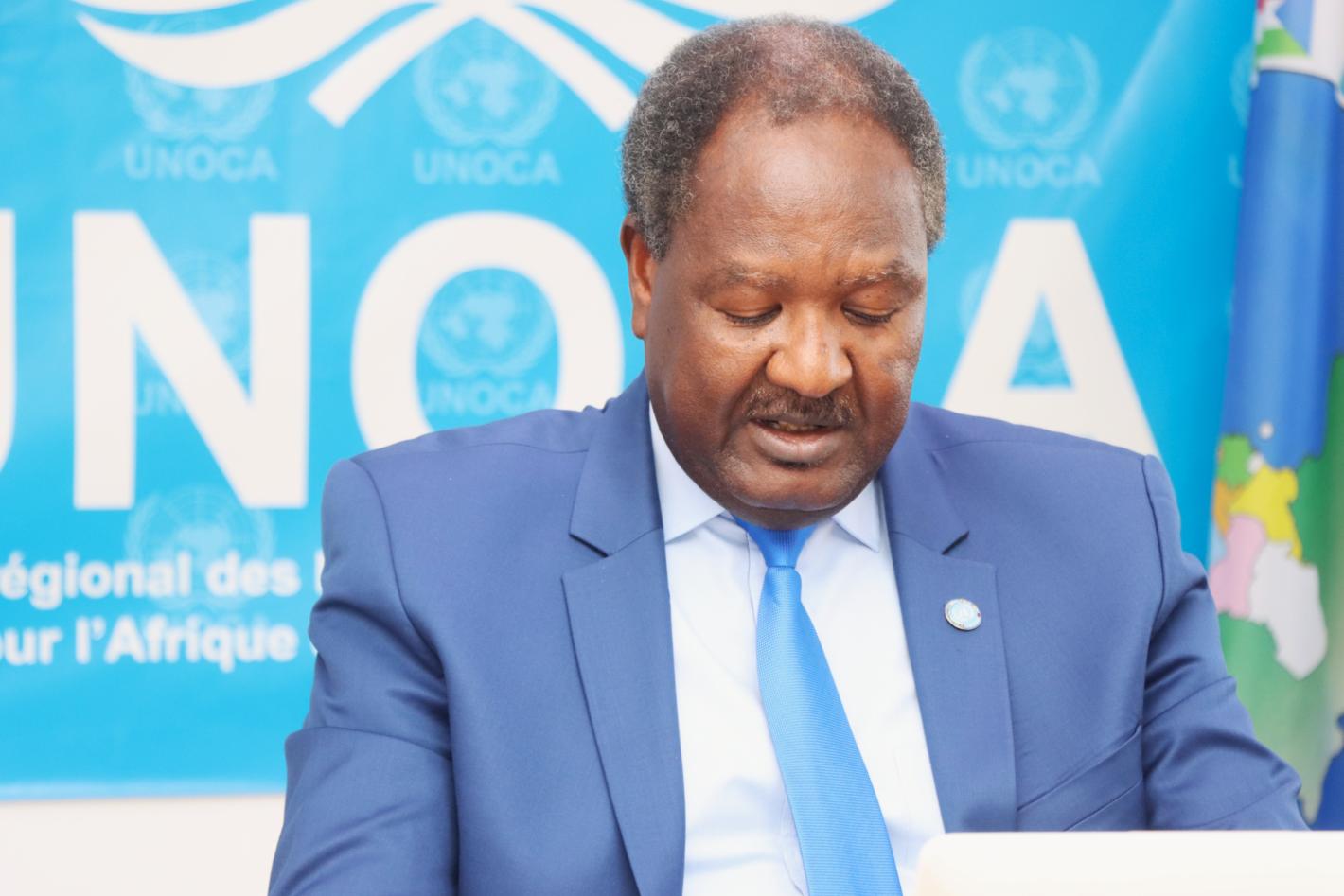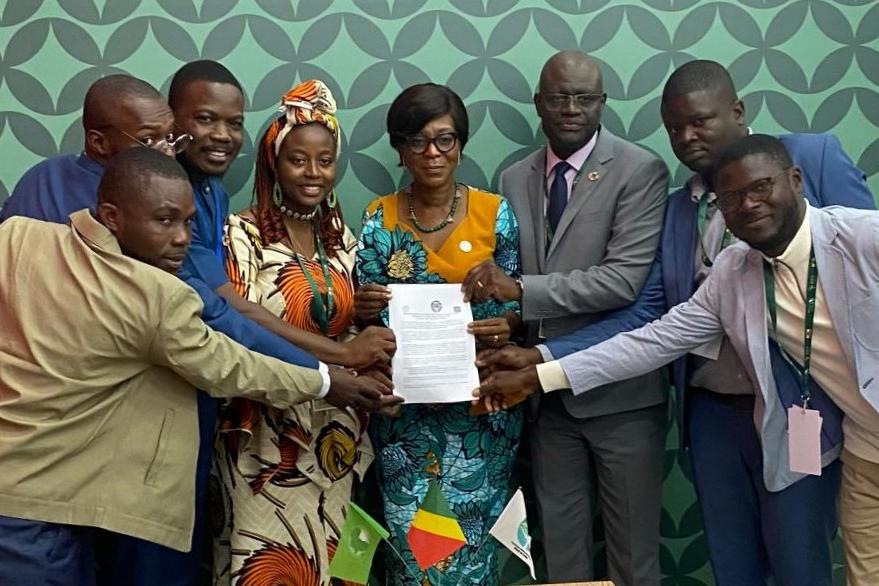At the 23rd Ordinary Summit of Heads of State and Government of the Economic Community of Central African States (ECCAS) on 1 July, in Libreville, the United Nations encouraged member countries to provide this sub-regional organization with "the resources and tools needed to complete the implementation of its institutional reform and enable it to better [help] Central Africa to meet the challenges it still faces.” Speaking on behalf of UNOCA in the absence of his colleague Abdou Abarry, the Special Representative of Secretary-General to the African Union, Parfait Onanga-Anyanga, mentioned in particular the political, security, climate and humanitarian challenges, as well as those related to electoral governance, among others. He noted that a "reinforced ECCAS" would be a "real bulwark" especially in a context "made even more complex in recent years by the effects of globalization, such as the COVID-19 pandemic, the war in Ukraine or, even closer to us, the conflict in Sudan."
Impact of the Sudanese crisis, support for CAR and Chad...
With regard to the latter, Mr. Onanga-Anyanga highlighted the impact of the political and security crisis in this neighboring country of the Central African Republic (CAR) and Chad. They offer "hospitality to tens of thousands of Sudanese fleeing violence in their country, and who come to join, particularly in Chad, the hundreds of thousands of Sudanese refugees who have been there for almost twenty years,” underlined the senior UN official. He called for solidarity with these two Central African states so that they continue to welcome "their Sudanese brothers in distress, while preserving their own security and stability." In this regard, he welcomed "the commitment of President Ali Bongo Ondimba who is in favor of holding a conference of ECCAS countries to respond to the humanitarian emergency facing the region."

In the meantime, Mr. Onanga-Anyanga reassured the leaders of the sub-region of the United Nations’ support, including through their specialized agencies. "We are also continuing our advocacy for increased international support for the Central African Republic and Chad that is commensurate with challenges and needs," he concluded, stressing the crucial role that the African Union (AU) continues to play in “the search for a peaceful solution to this fratricidal conflict of catastrophic consequences.” He recalled that the UN Secretary-General deplored the continuation of the said conflict and encouraged the joint facilitation of the United States of America and the Kingdom of Saudi Arabia to "redouble efforts towards a sustainable ceasefire" - a necessary step to “save human lives, facilitate the delivery of humanitarian assistance to Sudan and affected neighboring countries, and eventually create the conditions for relaunching an inclusive political transition.”
Elections and inclusive political dialogue
In this perspective, the Head of the United Nations Office to the African Union (UNOAU) noted that "greater involvement of ECCAS in efforts to meet its own challenges and those of the continent as well as better coordination with the African Union and other relevant regional organizations will be required." Electoral issues are no exception. “Given the electoral calendar in several ECCAS member States, the support of your regional institution will undoubtedly be very useful,” said Mr. Onanga-Anyanga. He welcomed the initiatives of many of them aimed at "promoting an inclusive political dialogue with a view to creating the appropriate conditions for transparent, credible and peaceful elections so as to strengthen national cohesion, peace and security within States and in the Central African sub-region.”
On a general note, the Special Representative of the Secretary-General to the AU expressed his optimism for the future of the sub-region. On this subject, he reiterated a comment made by the Head of UNOCA during his briefing to the Security Council on 5 June, and during which Mr. Abarry had declared that Central Africa is "richer in opportunities and resources than it is in challenges.”
The opening ceremony of the 23rd Ordinary Summit of ECCAS was also marked by speeches by the President of the AU Commission (Mr. Moussa Mahamat Faki), the President of the ECCAS Commission (Mr. Gilberto da Piedade Veríssimo), and the current President of ECCAS, who is also the Gabonese Head of State, (Mr. Ali Bongo Ondimba). They all expressed their concerns about the tensions that persist in some countries and reiterated their commitment to determination to work towards peace, security and sustainable development in the sub-region. Issues pertaining to regional integration and the financing of ECCAS were equally discussed. The Summit was also placed under the theme "addressing the financing challenge for the Community to accelerate the process of integration of the Central African region and support the implementation of its institutional reform."





